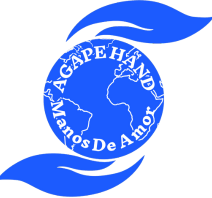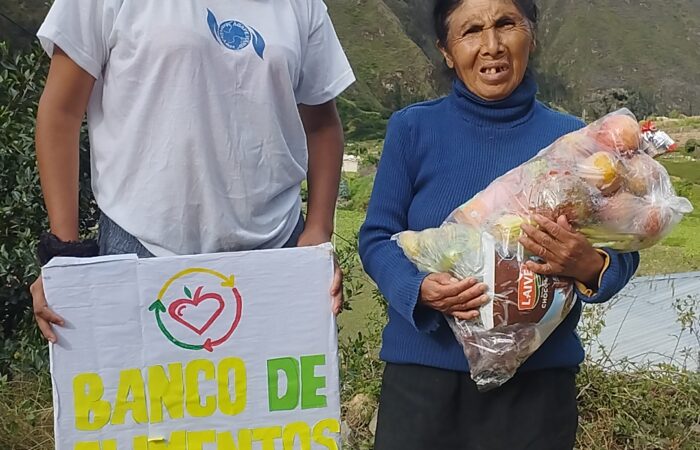“Money is not offered… you have to ask for it.” ‘Fundraising can be a thorough process but it is essential to grow your organization. This post includes a basic fundraising guide as well as an extensive list of resources and effective information to get you the resources you need.
Before You Begin: Different donors ask for different information on applications. In this list, you can see basic information that you need to have available for donors to know your organization.
• Your organization’s identity: You must present yourself as a firm and responsible organization, with competence to achieve its goals.
• Explain clearly and in detail the problem you want to solve, as well as a plan on how you will achieve your goals and objectives.
• Budget: What are your economic needs, what will be the impact and who will benefit your organization? Have a full budget of what you already have and what it takes.
• Monitoring and Evaluation: How will you measure and report the achievement of your goals?
How to prepare your team:
• Discuss fundraising plans with members of your organization as everyone must be involved. If possible assign a responsible person.
• Prepare using online resources as well as specific fundraising support workshops offered in your community.
• Update your strategic planning.
Research: To find potential donors you must be methodical and systematic when searching for information.
• Analyze the sources, risks and what you need to set your goals.
• Search for Information in:
- Specialized Journals
- Databases (See links at the end)
- Public Directories
- Donor materials such as annual reports
- Consultants
- General media e.g. Newspapers, television, radio, etc.
- Personal contacts and colleagues
- Libraries
- Business lunches
- Informal networks. • Which organizations has the donor benefited in the past?
• Do their values, vision and goals match those of your organization?
• Analyze donor parameters and agenda.
• What does the donor win by supporting your cause?
Type of donors: On average most donations come from individuals 75%, grants attract 11% in and the private sector only 5%.
• Individuals: They include members of your community, people interested in your project.
• Institutional grants and foundations: Intentional and development foundations. (See links at the end)
• Governments: Local, state or even national. Receiving their support would give you more credibility as an organization.
• Service Clubs and Associations: Rotary International, International Lions Club, Chambers of Commerce, and Industry-Specific Associations.
• Private Sector: These can be local, national, or international commercial enterprises. This already depends on your need as well as access to these companies.
Who to Start with:
• Start with people who are already supporting your cause as well as existing donors and organizations in your own community.
• Before formulating your proposal, try to build relationships with the donors you are considering.
• Look for donors who have the ability to give + are passionate or interested in the cause of your organization + have a generous nature or have benefited from your services.
Who to Start with:
Start with people who are already supporting your cause as well as existing donors and organizations in your own community.
Before formulating your proposal, try to build relationships with the donors you are considering.
Look for donors who have the ability to give + are passionate or interested in the cause of your organization + have a generous nature or have benefited from your services.
After donation:
Express your gratitude and appreciation:
The relationship with the donor begins by receiving their support, make sure to keep a genuine relationship.
Follow-up: Don’t just contact them when you need their support, see them as allies of your cause. Keep them involved with your organization, invite them to events, send them updates on your progress.
Assessment: Many donors will ask you for information about your organization’s progress and will also want proof of how you used your donation and the impact it has reached.
Beyond Money: Donors who want to help you but cannot do so by offering financial support can support you in other ways.
Offering your services or products: (Furniture, spaces, advertising, memberships, etc.)
Donating your time and experience. (e.g., advice to help you grow your organization)
Offer your network of contacts to target potential donors.
Sources: Fundraising — Introduction to Fundraising — Drafting a financial proposal (Detailed information on how to write a proposal includes an example). Mobilizing Funds for Development Projects
Explore these links from different donors:
Donor Index for Latin America: Provides detailed information from 548 donor organizations in the region, as well as their focus, contact information, year and amount of their donations.
Colombian Business Responsibility Center
Mexican Philanthropy Center
Foundations Group (Argentina)
GIFE association that includes institutes, foundations and corporations active within the Third Sector in Brazil.
Inter-American Development Bank (IDB)
Inter-American Foundation: Promotes equitable, participatory and self-sustaining development.
CODESPA Foundation (Spain)
These websites include technical support information on fundraising methods:
In Spanish:
CERI: Network of Libraries and Learning Centers specialized in access to sources of funding abroad and in the dissemination of international standards for various organizations.
CIVICUS Civicus directs different programs in resource mobilization and corporate philanthropy. It also maintains a database of organizations working to strengthen and grow global civil organizations.
Foundation Center: Short course for writing proposals (Includes several topics: Summary, Need to which the project responds, Project Description, Budget, Organization Information, Conclusion, Proposal Letter or Cover Letter. Understanding; recommended.
Idealista: This site contains thousands of links to NGOs and international donors in 130 countries.
International Training and Consultation Institute ITCI is a unit of the International Youth Foundation that provides global technical assistance and training to help NGOs to diversify their revenue streams and sustain themselves.
In English:
About Nonprofit Charitable: Organizations Contains information in a wide range of topics regarding the management or operation of an NGO. How to obtain web funding, staff training, “donor” information, business information, public relations, technology and volunteer management.
The Chronicle of Philanthropy The Chronicle is a biweekly journal with information on resource capture, technical assistance and NGO topics/comments from a US perspective.
The Foundation Center: Information on resource acquisition, including donor directories, an online librarian to answer questions, written proposal guides, specific donor application forms, training directories and seminars, and a bookstore guide.
InnoNet: InnoNet’s mission is to strengthen skills, knowledge and processes within public or charitable organizations to refine their studies and organizational effectiveness above all.
National Center for Nonprofit Boards: In addition to providing technical assistance to NGOs seeking to involve their boards in finding funds, NCNB also offers numerous links with other organizations providing technical assistance in fundraising.
Philanthropy Journal: This website provides links to web addresses of other foundations.
Looking for more information? Visit this link to obtain more information from regional or global donors. This page offers several tools for searching in fundraising.
Important note: EmprendeSocial is a publication where articles are written and promotes the culture of social entrepreneurship, which is why we think it is important to show them that there are many ways to collect form.
WE ARE NOT AN ORGANIZATION THAT PROVIDES ECONOMIC FUNDS



